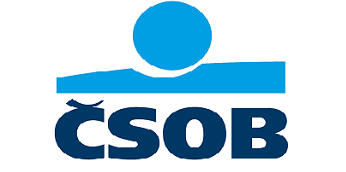
Life coaching is becoming a more and more popular sector as more individuals look for guidance and assistance in reaching their goals, both personal and professional.It takes significant training and the attainment of the appropriate credentials for practitioners to give successful life coaching services. With an emphasis on the key components that potential life coaches must take into account, this article will discuss the credentials needed to get a certification in life coaching.
Educational History and Experience
Strong academic qualifications and applicable experience are two of the major criteria for acquiring a life coaching certification. Many life coaching programs favor individuals with a bachelor’s or master’s degree in human development, psychology, counseling, or similar subjects, while there may not be a specific degree necessary. Effective communication methods, emotional intelligence, and a deep knowledge of human behavior are all offered by this academic grounding.
Comprehensive training in all elements of the coaching process is frequently offered in life coaching certification programs, in addition to academic schooling. Setting objectives, managing difficulties, making decisions, and personal growth are a few of the areas that this training may touch on. Aspiring life coaches can obtain the essential skills and competences through programs that usually include classroom education, hands-on training, and supervised coaching sessions.
Methods and Approaches of Coaching
It should involve one’s systemic understanding of multiple coaching styles and strategies in order to offer one superior counseling.The capacity to combine several strategic methods, such as strength-based coaching, solution-focused coaching, and cognitive behavioral coaching, should be one of the main qualifications for applicants interested in applying for life coaching employment. Moreover, they must be aware of how the tools and tactics such as active listening, factual probing, and action contracting are used.
Standards of Ethics and Proficiency
Like licensed professionals, life coaches philosophy too needs to follow a specific code of ethical and professional standards. There will be the emphasis on such issues like devotion to custody of clients, honesty and secrecy. A detailed understanding of these guidelines as well as impeccable delivery of them is a minimum grading point for prospective life coaches.
Typically, ethical decision-making, boundary management, and possible conflict of interest navigation are included in certification programs. For their certification to be maintained, candidates might also have to sign a code of conduct and commit to continuing professional development and supervision.
Hours of Coaching and Real-World Experience
Numerous life coach certifications programs need applicants to accrue a specific amount of real-world coaching hours in addition to the academic and theoretical requirements. In order to build their confidence and hone their coaching style, prospective life coaches may use this practical experience to apply their knowledge and abilities in authentic situations.
A considerable quantity of one-on-one or group coaching sessions under the guidance of seasoned coaches is typically required of candidates, however the precise number of hours may fluctuate throughout certification programs. Gaining the skills and self-assurance needed to work with customers effectively depends on this real-world experience.
Analyses and Ratings
Comprehensive tests and exams are frequently a part of life coaching certification programs, which make sure that applicants have the required abilities and know-how. Case studies, role-playing games, written tests, and coaching skill demonstrations might all be part of this.
Through the evaluation process, potential life coaches will be able to gauge their level of comprehension of fundamental coaching concepts, their efficacy in using coaching approaches, and their general preparedness to work with clients. To be eligible for the life coaching certification, candidates usually need to successfully complete these exams.
Constant Professional Improvement
For those who aspire to become life coaches, earning a certification does not mark the end of their path. A person must always work to improve and maintain their talents. Professional development activities including attending seminars, taking part in peer-to-peer learning groups, and pursuing higher training or specialties are frequently mandated for certified life coaches.
Life coaches maintain current knowledge of industry trends, research, and best practices because of their dedication to lifelong learning. Dedication to both professional and personal development is also evident, which is necessary in order to offer customers top-notch coaching services.
Specialization and Focus on a Niche
Although a comprehensive life coaching certification can offer a strong basis, other people might want to focus on a specific field, including wellness, relationship, or career coaching. Life coaches may stand out from the competition and better meet the particular demands of their target clientele by obtaining a specific certification.
Verification and Trustworthiness
It is really important to choose such a program which is approved by a good reputation industry body or association when one is looking for a coaching certification. The program is approved and certified when it shows the standards applied and that this certification is valid in the industry. Intended life coaches should make efforts to confirm the excellency of the program as well as the quality of faculty and its observation to accepted industry standards.
Professional Relationships and Networking
Life coaches can benefit greatly from developing a strong professional network. Life coaches may enhance their knowledge of current trends, share best practices, and perhaps grow their clientele by participating in industry events, becoming a member of professional groups, and working in tandem with other coaches.
Individual Qualities and Aspects
Characteristics that successful life coaches possess enable them to connect with their clients and effect meaningful change. These could include adaptability, empathy, imaginative thinking, attentive listening, and a genuine desire to help others fulfill their potential.
Conclusion
Among the multiple requirements of qualifying for a career position as a licensed life coach are a well-grounded educational background, structured and comprehensive training, real life experiences and the dedication to uphold the ethical and professional standards. Applicants who have met the necessary requirements will be entitled to the training, experience, and knowledge needed for them to be life coaches able to lead individuals to accomplishing their career and personal goals.
Whilst the coaching industry can never be fully static as it evolves with time, it is critical that a well-established resilient business always keeps its methods and approaches updated. Life coaches should devote themselves to gaining new skills and competencies not just to maintain but also to strengthen their ability to give the best support and advice to their clients.

 How Long Does It Take to Set Up a Business in the UAE?
How Long Does It Take to Set Up a Business in the UAE?  Why Progressive Cavity Pumps Play a Critical Role in Modern Industrial Operations
Why Progressive Cavity Pumps Play a Critical Role in Modern Industrial Operations  How to Get Instant Personal Loan Without Income Proof
How to Get Instant Personal Loan Without Income Proof  Difference Between a Savings Account & Current Account
Difference Between a Savings Account & Current Account 


